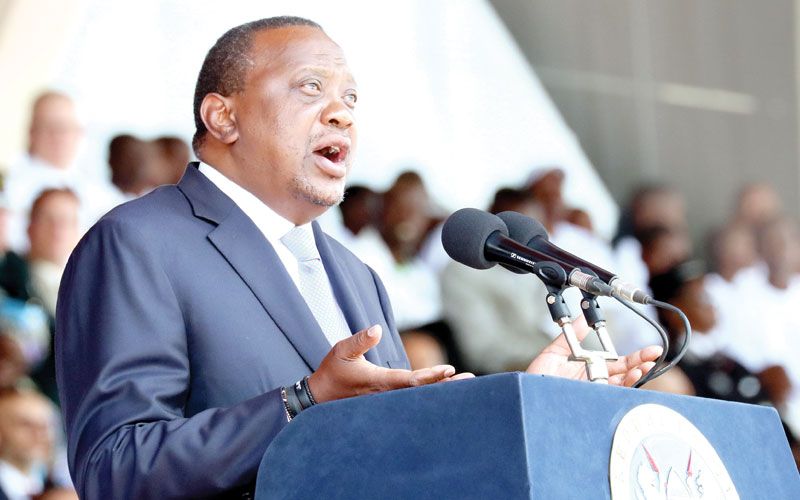Don’t relent on pressure to have pending bills cleared

In the most recent demonstration that the government has finally woken up to the devastation caused by pending bills that run into billions of shillings, President Uhuru Kenyatta ordered his Cabinet and Principal Secretaries not to go on Christmas holidays until they are cleared.
There has been widespread economic devastation as both national and county governments have refused to pay suppliers. Pending bills have become an intractable problem, defying all solutions. It’s a great thing the President has mobilised the entire government system to focus on this challenge.
Treasury Cabinet Secretary Ukur Yatani summed it up thus: “It’s unfair that after a contractor finishes their work, you stay with their money. We are getting reports that some of these people owed by the government are stressed to the extent where they take their own lives.”
Thousands of businesses have collapsed and homes and property auctioned over loans. The situation is especially grave where small and medium enterprises are concerned, as many have little or no reserves.
The economy is starved of cash. Cash is the oil that keeps the engine running. When this oil dries up, the engine seizes, what is referred to as an engine knock. Kenya’s economy has more or less seized.
For the last six months, the President has been ramping up pressure for pending bills to be cleared. Initially, there was some slight movement, then quiet. The Auditor General had conducted an audit for the Treasury that revealed that the national government owed Sh137 billion, while county governments owed over Sh100 billion.
For the last two months, Yatani has been on the warpath with counties. He identified 15 most notorious counties as Baringo, Garissa, Kiambu, Mombasa, Nandi, Kirinyaga, Bomet, Tharaka Nithi, Migori, Tana River, Isiolo, Vihiga, Nairobi and Machakos.
He has threatened to invoke provisions of Article 97 of the Public Finance Management Act to block additional allocations to county governments that are not showing progress in clearing pending bills.
As usual, the governors are up in arms against the demand, arguing that they are “independent.” They want to determine when, whom and how they will pay suppliers. Governors cannot be allowed to run counties on whims.
Further, they should not be allowed to sustain the “verification” circus that some of them have initiated, where they keep returning pending bills to fresh verification. Word is that some county governments, like Nairobi, are subjecting already verified pending bills to fresh audit. These are delaying tactics and should not be allowed.
The national government has already put in place a timetable to clear what its ministries and agencies owe. According to Interior Cabinet Secretary Fred Matiang’i, the government’s deadline for clearing pending bills is March 2020, and the Cabinet has already developed a schedule of how this will be implemented.
Indeed, Yatani said the balance of Sh4.2 billion of verified pending bills will have been cleared by January 15, 2020, with Sh10 billion cleared in the last three months.
He said other bills are undergoing verification and audit. He should see to it that this process is quickly dispensed with so that the genuine suppliers do not continue to suffer.
In the meantime, Yatani has vowed no let up on the pressure to counties.
“We will not relent from that until they come up with a formula in which they will pay everyone owed,” he vowed.
Going forward, the government should amend the law in line with recommendations by Deputy Controller of Budget Stephen Masha who wants the law amended to force counties to pay bills by a certain period. Masha recommends that pending bills start accumulating interest from the lapse of the payment period.
The shame of pending bills must never again be allowed to take root in Kenya. This is one legacy that Yatani can leave behind.
— gathukara@gmail.com










